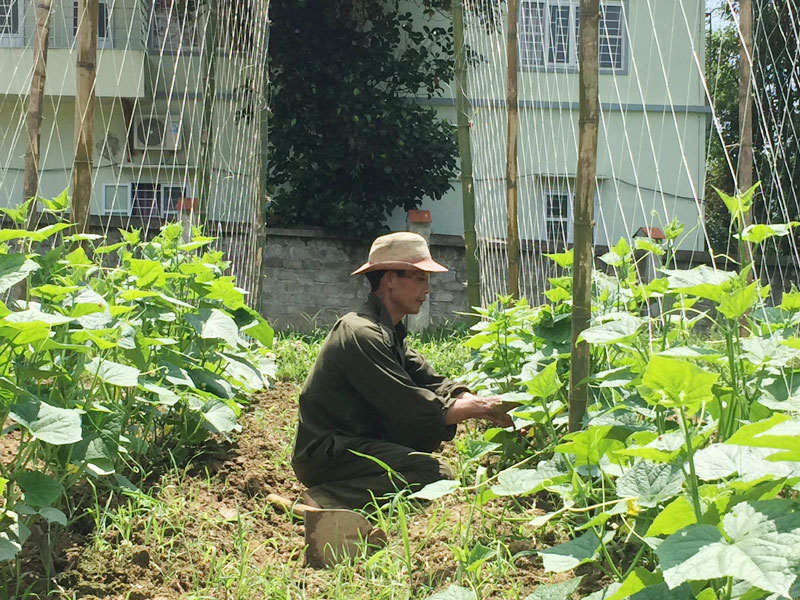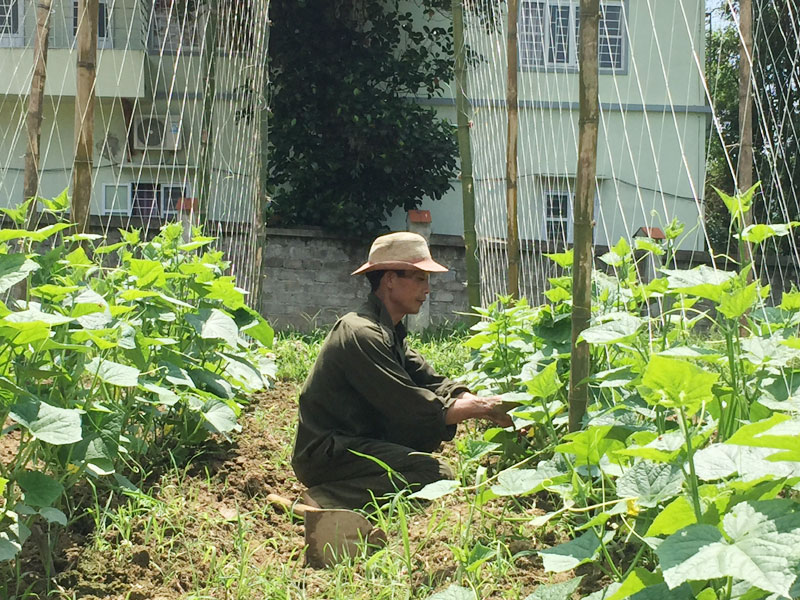
(HBO) – Based on the actual demand in the area, Tu Ly commune (Da Bac) has implemented the model of safe vegetable production in 2016 with the total area of 3.1 hectares. Initially, the model was only processed in two hamlets of Dong Tranh and Kim Ly with 38 households involved.

The household of Mr. Ly Van Phuc in Kim Ly
hamlet, Tu Ly commune (Da Bac district) has earned over 30 million VND per crop
by the safe vegetable cultivation.
The model has been implemented for two years,
now the area of cultivation expanded to 5 hectares with 75 households involved.
After four crops, most of the farmers have become mastered with the techniques
of cultivation.
After harvesting, all products were
transported to the central market in the area for consumption. Because of being
produced with the safe process, the price is always stable, the number of goods
meets the demands of customers, and there is no excess. At the moment, the
value of specialized cultivation is ranged from 150 to 200 million VND per
hectare. Particularly, the highest one was the recent cucumber crop in which
the value of specialized cultivation reached to 300 million VND per hectare.
Mr. Ly Van Phuc in Kim Ly hamlet, Tu Ly
commune, is one of the households participating in the model of safe vegetable
production, said: "My family’s area of vegetable is over 2000 m². We always
observe the procedure in production, and because vegetables do best in soil,
most of crops are bumper. In the recent vegetable crop, my family attained net
profits (after minus total expenditures) by over 30 million VND. If the weather
is favorable and there is no damage due to natural disasters, the production of
safe vegetable will be the potential direction of economics development which
can help the local people out of poverty.
In May of 2018, Tu Ly Village Service
Agricultural Cooperative was established with the role of promoting the
understanding of the market and the chains of product sales. Besides, the
commune requested the Division of Agriculture and Rural Development of District
People’s Committee to issue Food Safety Certificate in order to ensure the
output of local vegetable products as well as contribute to the increase in the
production and meet the needs of consumers. By the support of 500 million VND,
the commune plans to expand the area of 2 hectares for safe vegetable
production in this year.
According to data from the Hoa Binh Provincial Party Committee, the industrial production index for the first six months of 2025 is estimated to have increased by 20% compared to the same period last year. This marks the highest year-on-year growth rate for this period since 2020.
In the first six months of 2025, Hoa Binh province’s export turnover was estimated at 1.145 billion USD, marking an 18.11% increase compared to the same period in 2024. Import turnover was estimated at $ 804 million, a 17.15% increase, which helped the province maintain a positive trade balance.
The lives of the ethnic minority farmers in Tan Lac district have gradually improved thanks to the new directions in agricultural production. This is a testament to the collective strength fostered through the professional associations and groups implemented by various levels of the district’s Farmers’ Union.
With the motto the "product quality comes first,” after nearly one year of establishment and operation, Muong village’s Clean Food Agricultural and Commercial Cooperative, located in Cau Hamlet, Hung Son Commune (Kim Boi district), has launched reputable, high-quality agricultural products to the market that are well-received by consumers. The products such as Muong village’s pork sausage, salt-cured chicken, and salt-cured pork hocks have gradually carved out a place in the market and they are on the path to obtaining the OCOP certification.
In the past, the phrase "bumper harvest, rock-bottom prices" was a familiar refrain for Vietnamese farmers engaged in fragmented, small-scale agriculture. But today, a new spirit is emerging across rural areas of Hoa Binh province - one of collaboration, organisation, and collective economic models that provide a stable foundation for production.
Maintaining growing area codes and packing facility codes in accordance with regulations is a mandatory requirement for agricultural products to be eligible for export. Recently, the Department of Agriculture and Environment of Hoa Binh province has intensified technical supervision of designated farming areas and packing facilities to safeguard the "green passport" that enables its products to access international markets.



